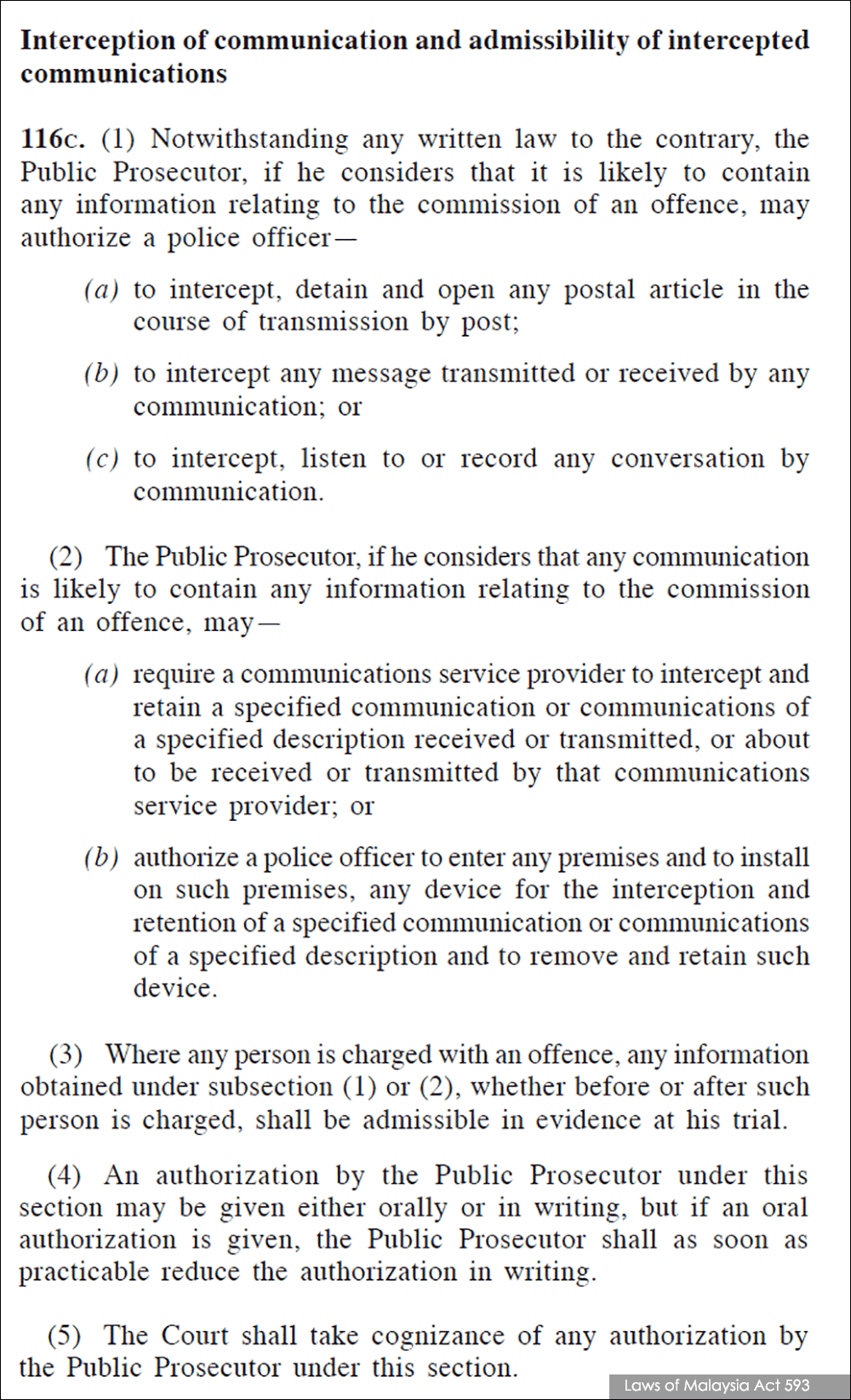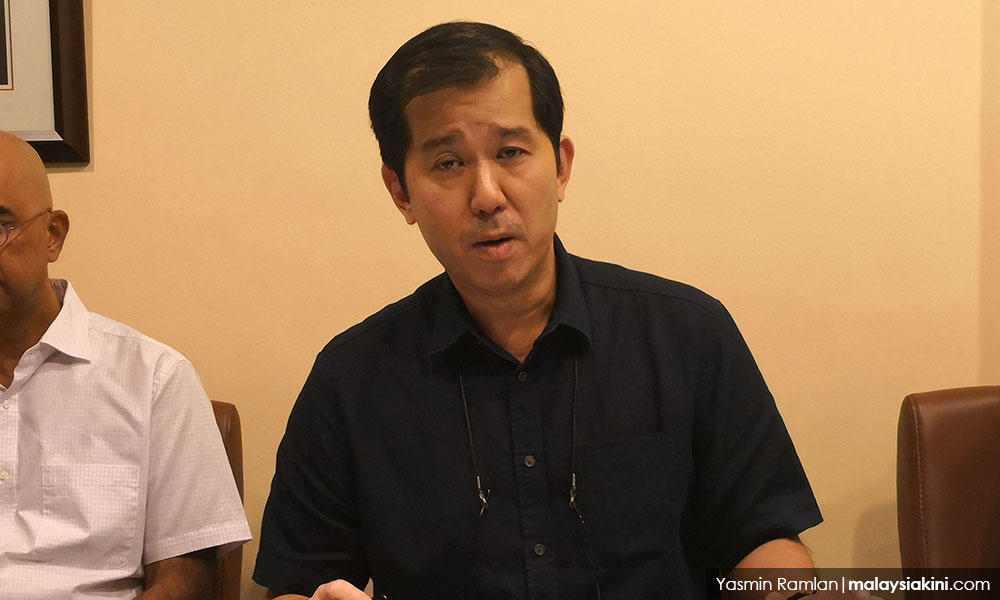Not only is it legal for the Malaysian government to tap telephone conversations, it was Najib Abdul Razak’s administration that made so.
According to civil rights lawyer Syahredzan Johan, this was as changes to the Criminal Procedure Code (CPC), which made intercepting and recording private conversations possible, was made in 2012 during Najib’s stint as prime minister.
“You know what's ironic? It was Najib's government who introduced amendments to the CPC to allow for interception, listening and recording of communications in 2012.
“Yeah, Najib's government made it legal for the government to spy on you,” he said in a series of tweets earlier today.
His comments came in the wake of shocking revelations by the MACC, who today released several audio recordings of telephone conversations purportedly between Najib and several others in 2016 on 1MDB. The anti-graft body claimed the recordings are authentic.
Among the conversations allegedly included calls with his wife Rosmah Mansor, former MACC chief Dzulkifli Ahmad, and high-ranking United Arab Emirate figures.
Indeed a check of the CPC (Amendment) Act 2012 indicated the inclusion of Section 116C on the “interception of communications and admissibility of intercepted communications”.

It states that a public prosecutor may authorise a police officer to “intercept, listen or record” any conversation as well as to install a device to intercept specific communications, should the former believe it contains information relating to the commission of an offence.
A communications service provider may also be required to intercept and retain specific communications. Information obtained is admissible in court, even if obtained after a person has been charged.
Amendments to the CPC also allowed for search and seizures without a warrant and access to computerised data.
However, Syahredzan, who is also political secretary to Iskandar Puteri MP Lim Kit Siang, said although such actions by authorities were legal, their constitutionality remains a separate matter.
“Whether those provisions are constitutional is a whole different thing. The constitutionality of those provisions has not been challenged in court before.”

Meanwhile, lawyer and former Gerakan politician Andy Yong (above) said the country's lawmakers should look into this matter to ensure proper mechanisms are in place to prevent abuse and protect privacy.
“Most developed countries have invented a mechanism to protect the right of privacy of an individual by empowering the judiciary to provide guidelines to the government agencies for conducting surveillance for the interest of the nation.
“In a way, they gave the judiciary absolute authority to use its discretion to accept or reject evidence procured from surveillance,” he said in a statement today.
He acknowledged that wiretapping may be necessary to safeguard the country against technology-driven terrorist or other covert activities that could prove a national threat.
Yet, as a result, Yong stated that “intrusion of privacy is not always considered (a) usurpation of the individual’s right by concerned authorities".
He said: “Sturdy rules are, therefore, required for regulating law enforcement agencies surveillance activities, which is not an easy matter to accomplish.
“On the one hand, lawmakers have to give public authorities unprecedented power to conduct surveillance to safeguard the interest of a nation.”
He further questioned the MACC’s objectives in procuring and releasing the recordings.
“On (the) Najib's revelation... does the MACC intend to tender the audio clips in the ongoing court trial, if not, what is their objective?
“Ultimately, we as Malaysians, fear that the abrupt use of surveillance technologies could lead to a serious loss of autonomy, endangering our right of privacy and freedom as protected under the Federal Constitution,” his statement read.

